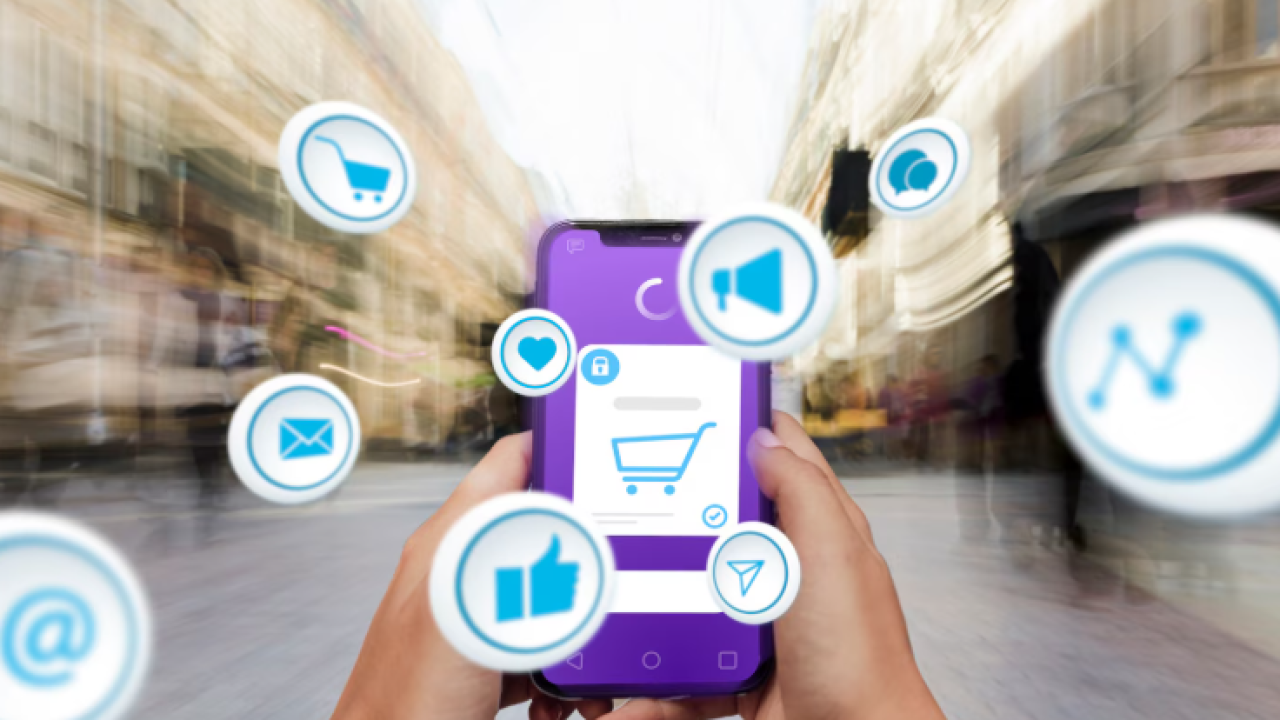
Understanding the Power of AI in E-commerce
Personalized Shopping Experiences: How AI Improves Customer Journeys
AI significantly enhances the customer journey by creating truly personalized shopping experiences. Forget generic recommendations; AI analyzes vast amounts of data – browsing history, purchase behavior, even social media activity – to understand individual preferences. This allows for hyper-targeted product suggestions, boosting conversion rates and fostering customer loyalty. For example, a well-designed AI-powered app might suggest complementary items based on a customer’s cart contents, or proactively offer discounts on products similar to previous purchases.
This level of personalization extends beyond recommendations. AI can also personalize the entire shopping experience, from customized email marketing campaigns to tailored search results within the app itself. “By anticipating customer needs and proactively addressing them, your AI-powered store app fosters a sense of connection and understanding, increasing customer satisfaction and lifetime value.” This translates to increased sales and a stronger brand reputation, ultimately setting your business apart in the competitive e-commerce landscape. Tools like those offered by Shopify and Salesforce now readily integrate AI capabilities, making these improvements more accessible than ever.
Launch Your App Today
Ready to launch? Skip the tech stress. Describe, Build, Launch in three simple steps.
BuildAI-Driven Inventory Management and Supply Chain Optimization
AI significantly streamlines inventory management, reducing waste and boosting profits. By analyzing sales data, predictive analytics forecasts demand accurately. This allows for proactive ordering, preventing stockouts of popular items and minimizing excess inventory of slow-movers. Companies like Stitch Fix leverage AI to personalize recommendations and optimize stock levels based on individual customer preferences, resulting in improved sales and reduced holding costs.
Furthermore, AI optimizes the entire supply chain. Real-time tracking of shipments, combined with machine learning algorithms, predicts potential delays. This allows businesses to adjust logistics proactively, minimizing disruptions and ensuring timely delivery. For example, Amazon uses AI extensively to optimize its vast logistics network, providing faster delivery times and greater efficiency. “Implementing AI-powered inventory management and supply chain optimization within your custom store app is crucial for remaining competitive in today’s market.” This leads to significant cost savings and enhanced customer satisfaction.
Boosting Sales with AI-Powered Product Recommendations and Targeted Advertising
AI significantly boosts e-commerce sales through personalized experiences. By analyzing customer browsing history, purchase patterns, and even real-time behavior, your AI-powered store app can deliver highly relevant product recommendations. This surpasses generic suggestions, leading to increased conversion rates. For example, Amazon’s recommendation engine is a prime example of this strategy’s success, driving a significant portion of their sales.
Targeted advertising further amplifies this impact. Instead of broad marketing campaigns, AI allows you to focus efforts on specific customer segments. This ensures your advertising budget reaches the most likely buyers. Imagine showcasing new hiking boots to customers who recently purchased hiking socks – it’s a highly effective, efficient strategy. “Implementing AI-powered product recommendations and targeted advertising within your custom app is a key differentiator in today’s competitive market.” This elevates customer experience and directly translates into higher sales and improved ROI.
Planning Your AI Store App: Defining Scope and Features
Identifying Your Target Audience and Their Needs
Understanding your target audience is paramount when building an AI-powered store app. Who are you trying to reach? Are they millennials comfortable with advanced technology, or a more mature demographic requiring a simpler, more intuitive interface? Consider their tech-savviness, shopping habits, and preferred communication channels. For example, a younger audience might appreciate features like augmented reality try-ons, while an older demographic might prioritize easy navigation and large, clear fonts. Detailed user personas can help clarify these differences and inform design choices.
“Failing to accurately define your target audience will directly impact app usage and success.” This crucial step influences every aspect of your AI-powered store app, from the design of the user interface and the selection of AI features to the marketing strategy. Research their needs using surveys, focus groups, and data analytics. Analyze competitor apps to identify successful strategies and unmet needs in your niche market. This thorough understanding ensures your app caters specifically to your ideal customer, maximizing engagement and conversion rates. Gathering this data before development begins is critical for a successful launch.
Choosing Essential Features for Your Minimum Viable Product (MVP)
Starting small is key to successful app development. Focus on building a Minimum Viable Product (MVP) that includes core functionalities. This approach allows for quicker launch and iterative improvements based on user feedback. Prioritize features directly impacting sales and user experience, such as a user-friendly interface for browsing and searching products, a secure checkout process, and basic order tracking. Examples of successful MVPs include early versions of popular apps like Uber, which initially focused on ride-hailing before expanding into food delivery and other services.
For your AI-powered store app MVP, consider incorporating AI-driven features incrementally. Begin with simpler functionalities like personalized product recommendations, based on browsing history. This can significantly enhance the shopping experience without requiring complex AI models. Later iterations can introduce more advanced features such as AI-powered chatbots for customer service or smart inventory management. “Remember, the goal of your MVP is to validate your core concept and gather valuable data to inform future development.” Avoid feature creep; concentrate on delivering a polished, functional app first.
Prioritizing Features Based on Business Goals and User Value
Building your AI-powered store app requires a strategic approach to feature selection. Don’t try to do everything at once. Focus on features directly aligning with your business goals and providing significant user value. For example, if boosting sales is paramount, prioritize features like personalized product recommendations (powered by AI, of course!) and a streamlined checkout process. These directly address user needs and drive conversions. Consider analyzing competitor apps and identifying areas where you can offer a superior experience. “Prioritize features that solve real problems for your customers and offer a unique selling proposition.”
Successfully launching an AI store app hinges on understanding your target audience. What are their pain points? What features would genuinely improve their shopping experience? For instance, a robust AI-powered search function can significantly enhance user experience, allowing for faster and more accurate product discovery. Similarly, incorporating chatbots for customer service can improve response times and reduce support costs. Remember, “a well-planned feature set maximizes user engagement and minimizes development complexity.” Prioritize based on data analysis and user feedback to ensure you’re building a valuable and profitable app.
Choosing the Right Technology Stack for Your App
Selecting a Suitable AI Platform: Cloud-Based vs. On-Premise Solutions
The choice between a cloud-based AI platform and an on-premise solution significantly impacts your AI-powered store app’s development and scalability. Cloud platforms like AWS, Google Cloud, and Azure offer readily available AI services, including machine learning APIs and pre-trained models. This reduces development time and infrastructure costs. They also provide automatic scaling, ensuring your app handles peak demand efficiently. For example, leveraging AWS’s Rekognition for image analysis simplifies product identification and search functionalities.
However, on-premise solutions offer greater control over data security and compliance. This is crucial if you handle sensitive customer information or operate in heavily regulated industries. You’ll need dedicated IT infrastructure and expertise to manage and maintain your own servers. “This approach, while providing superior control, demands a larger upfront investment and ongoing maintenance compared to cloud-based alternatives.” Consider your budget, technical expertise, and data security needs carefully when making this crucial decision. Choosing the right AI platform directly affects your app’s performance, cost-effectiveness, and long-term success.
Frontend and Backend Development: Picking the Right Frameworks and Languages
Selecting the right frontend framework significantly impacts user experience. Popular choices include React Native, offering cross-platform compatibility for iOS and Android, and Flutter, known for its fast development and visually appealing interfaces. Consider your budget and team expertise when making this decision. React Native boasts a large community and abundant resources, while Flutter’s unique approach may require a steeper learning curve. “The best choice depends on your specific project needs and your developers’ skills.”
For the backend, robust choices abound. Node.js with Express.js provides a scalable and efficient solution, particularly well-suited for real-time applications like inventory updates. Alternatively, Python with Django or Flask offers a structured and secure approach, benefiting from a mature ecosystem and extensive libraries. Databases like PostgreSQL or MongoDB provide flexible options for storing product information and user data. Remember to prioritize security features throughout your stack to protect sensitive customer information and maintain compliance with relevant regulations.
Database Selection: Ensuring Scalability and Data Integrity
Your choice of database significantly impacts your AI-powered store app’s performance and longevity. For handling the large volumes of product data, customer interactions, and transactional information typical in e-commerce, a scalable solution is paramount. Consider NoSQL databases like MongoDB or Cassandra, known for their flexibility and ability to handle rapidly growing datasets. These databases excel at managing unstructured or semi-structured data, perfect for integrating AI features that rely on diverse data inputs like customer preferences and product reviews. Relational databases like PostgreSQL remain a viable option for specific needs, offering robust transaction management. However, careful planning is crucial to ensure scalability as your business expands.
Choosing the right database is critical for maintaining data integrity. A robust system safeguards against data loss and corruption, preserving the accuracy of your AI’s insights. Implement data validation checks and regular backups. Consider using cloud-based database services like AWS DynamoDB or Google Cloud Spanner. These provide automated scaling and enhanced security features, easing the burden of database management. “Selecting a database that supports ACID properties (Atomicity, Consistency, Isolation, Durability) is essential for maintaining reliable transactional data.” Remember that database selection isn’t a one-size-fits-all; the best choice depends on your specific needs and anticipated growth.
Building Your App: Development Process and Best Practices
Step-by-Step Guide to App Development: From Design to Deployment
First, meticulously plan your AI-powered store app’s features and user interface (UI). Consider your target audience and their needs. Utilize wireframing tools to sketch out the app’s structure and navigation flow. This ensures a user-friendly experience, critical for success. Remember, a well-designed UI boosts user engagement and conversion rates. For example, apps like Shopify and Square have demonstrated the power of intuitive design in driving sales. “Prioritizing a seamless user experience is paramount for any successful e-commerce application, especially one incorporating AI.”
Next, choose a suitable app development platform, like React Native or Flutter, for cross-platform compatibility or native development (Swift/Kotlin) for superior performance. Select appropriate AI tools and APIs. Integrate these carefully into the app’s backend infrastructure, ensuring smooth data flow and optimal performance. Rigorous testing throughout the development cycle is essential. This includes unit testing, integration testing, and user acceptance testing (UAT). “Thorough testing minimizes bugs and ensures a polished, reliable AI-powered store app ready for deployment.” Finally, deploy your app to the relevant app stores, Apple App Store and Google Play Store, after successful testing.
Ensuring Security and Data Privacy: Essential Considerations
Data security is paramount when building an AI-powered store app. Implement robust security measures from the outset. This includes utilizing end-to-end encryption for all sensitive data, such as customer information and transaction details. Regular security audits and penetration testing are crucial to identify and address vulnerabilities proactively. Consider adopting multi-factor authentication (MFA) to enhance user account protection. Following industry best practices like those outlined by the OWASP (Open Web Application Security Project) is essential. Failing to prioritize security can lead to significant financial losses and reputational damage.
Compliance with data privacy regulations is non-negotiable. Understand and adhere to regulations like GDPR (General Data Protection Regulation) and CCPA (California Consumer Privacy Act), depending on your target market. Be transparent with users about how you collect, use, and protect their data. Provide clear and concise privacy policies, easily accessible within your app. “Employing data minimization techniques—collecting only necessary data—is a vital aspect of responsible data handling.” Regularly review and update your security protocols and privacy policies to adapt to evolving threats and regulatory changes. This proactive approach builds trust and protects your business and your customers.
Testing and Quality Assurance: Identifying and Fixing Bugs Before Launch
Thorough testing is crucial before launching your AI-powered store app. This isn’t just about finding bugs; it’s about ensuring a seamless user experience that drives sales and customer loyalty. Employ a multi-stage approach, including unit testing of individual components, integration testing to check how different parts work together, and user acceptance testing (UAT) with real users to identify usability issues. Consider using established testing frameworks like Appium or Espresso, depending on your app’s platform. “Ignoring this stage can lead to costly post-launch fixes and severely damage your brand reputation.”
Prioritize automated testing wherever possible to streamline the process and catch bugs early. This allows for more frequent testing cycles and faster iterations. Remember to test across different devices and operating systems to ensure compatibility. Document all bugs meticulously, including steps to reproduce them, and assign them to developers for resolution. “Regular testing throughout the development lifecycle is more efficient and cost-effective than a massive testing blitz at the end.” A robust QA process builds confidence in your app’s performance and stability, paving the way for a successful launch.
Launching and Marketing Your AI Store App
App Store Optimization (ASO): Maximizing Visibility and Downloads
Effective App Store Optimization (ASO) is crucial for your AI-powered store app’s success. A strong ASO strategy significantly impacts your app’s visibility within app store search results. This means focusing on keyword research to identify terms your target audience uses when searching for similar apps. Consider incorporating these keywords naturally into your app’s title, description, and metadata. For example, if you’re selling clothing, keywords like “AI-powered fashion app,” “personalized style recommendations,” and “virtual stylist” could be highly effective. Remember to optimize your app’s screenshots and video previews to showcase its unique AI features and benefits.
Beyond keywords, user reviews are invaluable. Positive reviews boost your app’s ranking and instill trust in potential users. Encourage users to leave reviews by offering incentives, such as in-app discounts or exclusive content. “Regularly monitor your app’s rating and address negative reviews promptly and professionally,” demonstrating your commitment to customer satisfaction. A well-executed ASO strategy, combined with a high-quality app, is the foundation for achieving high download numbers and building a loyal user base. Remember that consistent monitoring and adaptation are key for long-term success in the competitive app market.
Marketing Strategies for AI-Powered Store Applications
Marketing your AI-powered store app requires a multi-faceted approach. Focus on highlighting the unique value proposition of AI features. Showcase personalized recommendations, faster checkout processes, and proactive customer service in your marketing materials. Consider using targeted advertising on social media platforms like Facebook and Instagram, reaching potential customers based on demographics and interests. For example, a clothing retailer could target ads towards fashion-conscious individuals showcasing the app’s AI-driven style recommendations. A strong online presence is crucial; optimize your app store listing with compelling screenshots and videos demonstrating the app’s AI capabilities.
“Successful marketing hinges on data-driven decisions.” Track key metrics like app downloads, user engagement, and conversion rates to refine your strategy. Leverage user reviews and testimonials to build trust and credibility. Consider influencer marketing by partnering with relevant industry experts or bloggers to promote your AI store app. Don’t underestimate the power of email marketing; build an email list and send targeted campaigns announcing new features, promotions, and exclusive offers to your app users. Remember, consistent and strategic marketing is essential for driving user acquisition and retention for your AI-powered application.
Gathering User Feedback and Iterative Development
Post-launch, gathering user feedback is crucial for iterative development. Implement in-app surveys, feedback forms, and utilize app store reviews to understand user experience. Actively monitor social media mentions and online forums for additional insights. Tools like Hotjar or UserTesting can provide valuable data on user behavior within your AI-powered store app. Remember, this feedback isn’t just about bug fixes; it informs the evolution of your app’s AI features and overall functionality. For example, analyzing user search patterns can help refine your AI’s product recommendations.
Prioritize addressing critical issues promptly. Regular updates, incorporating user suggestions, show commitment to improvement. Consider A/B testing different features or UI/UX elements based on user feedback. This continuous improvement cycle ensures your AI store app remains relevant and competitive. “Data-driven decisions, informed by user insights, are key to building a successful and engaging mobile commerce experience.” Companies like Netflix and Spotify leverage this approach effectively, constantly evolving their platforms based on user behavior data. This iterative process is essential for long-term success in the highly competitive app market.
Future Trends and Innovations in AI-Powered Store Apps
The Growing Role of Augmented Reality (AR) and Virtual Reality (VR)
Augmented reality (AR) and virtual reality (VR) are rapidly transforming the retail landscape. Imagine customers using AR to virtually “try on” clothes or furniture within their own homes, eliminating the need for physical fitting rooms or deliveries for returns. This immersive experience, powered by AI-driven image recognition and 3D modeling, significantly enhances customer engagement and reduces purchase anxieties. Companies like Warby Parker already leverage AR for virtual try-ons, showcasing the potential for increased sales and improved customer satisfaction.
The integration of VR is also poised for significant growth. VR showrooms offer customers a truly interactive experience, exploring products and store layouts from anywhere in the world. This is particularly beneficial for luxury brands or businesses with geographically dispersed target audiences. By combining AI-powered product recommendations with a fully immersive VR environment, AI-powered store apps can create uniquely personalized shopping journeys. “This creates a competitive edge by offering a level of customer service and engagement that traditional e-commerce platforms simply cannot match.” The future of retail is undoubtedly intertwined with the seamless convergence of AR/VR and AI.
Personalization and Customer Segmentation at Scale
AI is rapidly transforming how businesses interact with customers. Personalization is no longer a luxury; it’s a necessity. AI-powered store apps can analyze vast datasets of customer behavior – browsing history, purchase patterns, and even social media activity – to create highly personalized shopping experiences. This allows for targeted product recommendations, customized offers, and relevant content delivery, significantly boosting conversion rates. Companies like Amazon already leverage this extensively, showing the clear benefits of such systems.
This granular level of data analysis enables sophisticated customer segmentation. Instead of broad demographic targeting, AI allows for the creation of highly specific customer segments based on individual preferences and behaviors. This precision allows for more effective marketing campaigns and improved customer lifetime value. “By tailoring messaging and offers to specific segments, you significantly increase the effectiveness of your marketing spend and improve customer engagement,” resulting in stronger brand loyalty and higher profits. The key is to use this power responsibly, respecting customer privacy and utilizing data ethically.
The Impact of Emerging Technologies on the Future of E-commerce
Emerging technologies are rapidly transforming the e-commerce landscape. The integration of artificial intelligence (AI), particularly machine learning (ML) and natural language processing (NLP), is driving personalized shopping experiences. Companies like Amazon already leverage AI for product recommendations and targeted advertising, significantly boosting sales and customer engagement. This trend will only accelerate, with more sophisticated AI driving everything from chatbot interactions to predictive analytics for inventory management.
“The future of e-commerce hinges on harnessing the power of these advancements.” Augmented reality (AR) and virtual reality (VR) technologies are also poised to revolutionize online shopping, offering immersive experiences that bridge the gap between online and offline retail. Imagine trying on clothes virtually or viewing furniture in your own living room before purchase – this is no longer science fiction. These innovations, coupled with advancements in blockchain technology for secure transactions and improved supply chain management, promise a more efficient, personalized, and secure e-commerce ecosystem. Building your own AI-powered store app is key to capitalizing on these opportunities.
Launch Your App Today
Ready to launch? Skip the tech stress. Describe, Build, Launch in three simple steps.
Build





